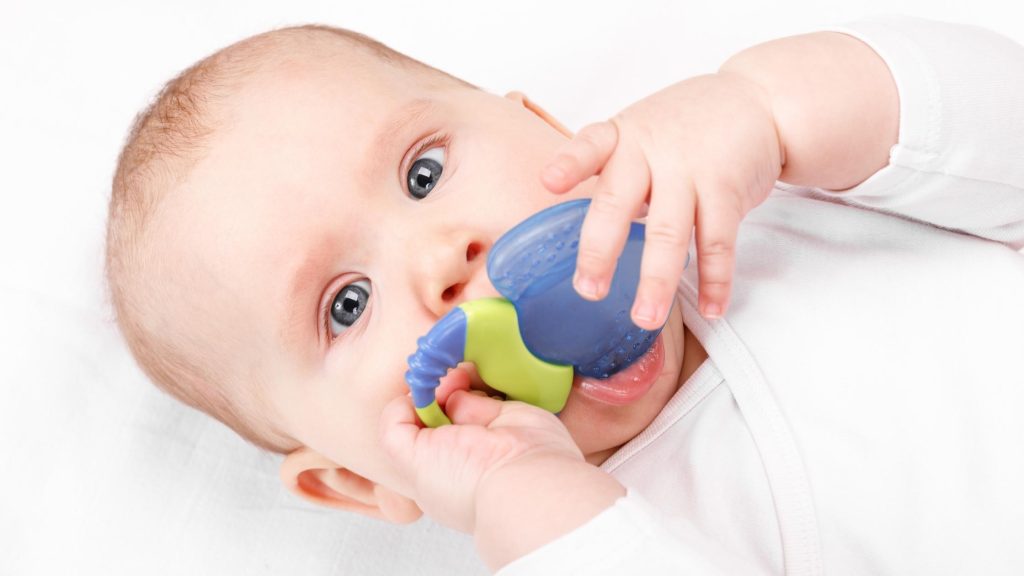When do Your Baby’s Teeth First Come In?

Teething is a process where your baby’s first teeth come through their gums. It can be stressful and frustrating for both babies and parents, and this process can start as early as three months old. Let’s talk about what to expect during teething.
When do Your Baby’s Teeth First Come In?
While your baby may start the process of teething at three months old, you may not see the first teeth push through your baby’s gumline until they’re between four and seven months old. Usually, the first teeth to appear are the two bottom front teeth. These are called the central incisors. Four to eight weeks later, the four front upper teeth come in, and the lower lateral incisors will come in a month after.
The major first sign of teething is that your child may drool more and want to chew on things. That is not universal to all babies, however. For some babies, teething is painless. Some babies will be irritable briefly, and some will be cranky for weeks.
To make teething easier for your baby, you should wipe your baby’s face with a cloth to remove drool and prevent rashes, rub your baby’s gums with a clean finger, and give them something to chew on.
When picking the best toys for your baby, you should choose something too large to be swallowed or choked on and something that cannot break into small pieces. If your baby seems incredibly irritable, you can put the item in the refrigerator to chill to give them a little relief from their sensitive gums.
Even though your baby’s teeth may not poke through their gums until they’re four months old, the process can start a little earlier. It can take weeks for all of your baby’s first teeth to come in, but while they are going through the process, you can soothe them by keeping their face clean, rubbing their gums gently, and giving them something to chew on.